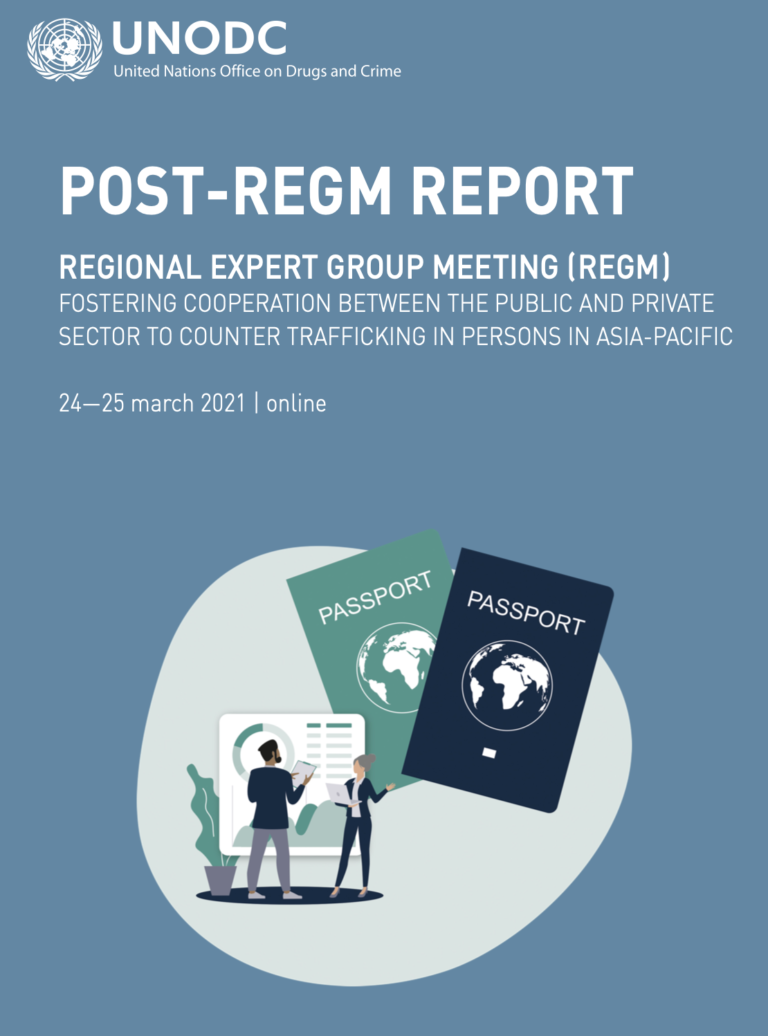On 24–25 March 2021, the UNODC Civil Society Unit (CSU) and the Human Trafficking and Migrant Smuggling Section (HTMSS) with support from the Regional Office for Southeast Asia and the Pacific (ROSEAP) in Bangkok and the Regional office for South Asia in New Dehli held an online Regional Expert Group Meeting (REGM) on “Fostering Cooperation between the Public and Private Sector to Counter Trafficking in Persons in Asia-Pacific”. The REGM involved over 60 participating experts from the Asia-Pacific region. Participants came from a range of organisations, which included governments, private sector companies, non-governmental organisations, and academic institutions, all with a vested interest in addressing human trafficking through stronger partnerships.
The purpose of the REGM was to facilitate focused, constructive, solution-oriented and critical discussions related to preventing and combating trafficking in persons through public-private partnerships (PPPs). Participants analysed the current challenges posed by trafficking to the private sector; exchanged good practices on how to better engage on human trafficking prevention and shared experiences on innovative approaches to addressing human trafficking at the country and/or regional level. This allowed for an opportunity to exchange on how to strengthen the engagement of the private sector in order to effectively support Member States’ implementation of the Trafficking in Persons Protocol of the United Nations Convention against Transnational Organized Crime (UNTOC).
This REGM was part of a series of regional consultations forming part of the broader UNODC project “Public-Private Partnerships: Fostering Engagement with the Private Sector on the Implementation of the UN Convention against Transnational Organized Crime (UNTOC) and its Trafficking in Persons Protocol” (“PPP Project”). Insights and recommendations will inform UNODC’s Compendium of best practices on successful PPPs, which is currently under development and will be launched in late 2021.

